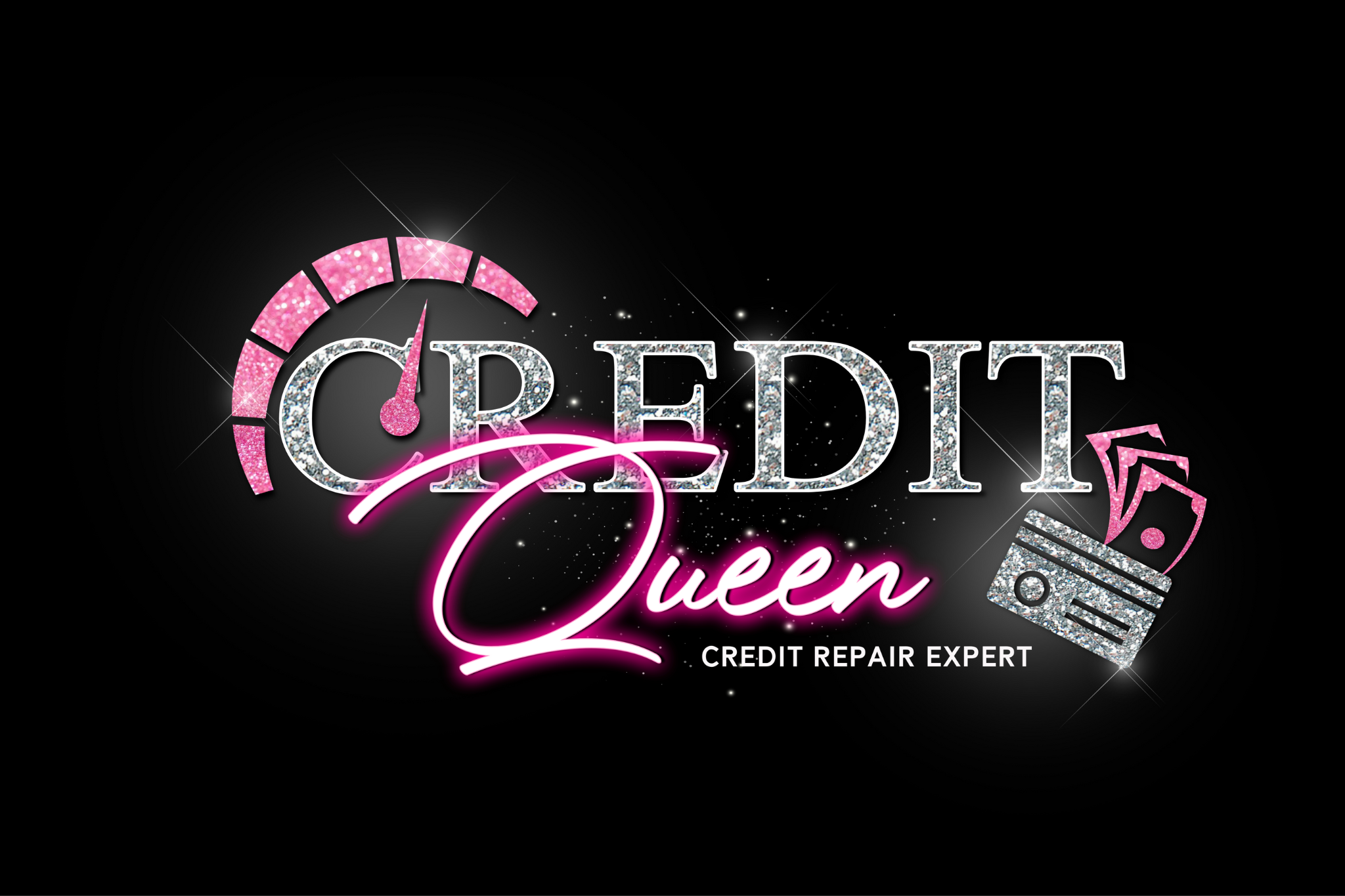Have you ever heard of the term “zombie debt“? It’s not from a thriller movie but the spooky nickname given to debt that’s supposed to be long gone but somehow rises from the grave.
Newspapers nationwide have a field day with this term, likening time-barred debt (debts that have reached their expiration date or statute of limitations) to zombies creeping back into our lives. They even use wild metaphors about debts resurrecting like undead horrors, devouring our bank accounts.
Okay, it might sound a bit over the top. Still, these articles pack a punch of helpful tips to shield yourself from sneaky debt collectors trying to breathe life into these expired debts.
They list illegal tactics these collectors often pull, helping you spot when they’ve crossed the line.
And guess what?
It’s not just the newspapers diving into this drama. Even scholarly articles join the undead metaphor bandwagon, comparing time-barred debts to relentless cancers only cured by a financial “Chapter 7 lumpectomy.” [1]
But here’s the thing: all this vivid wordplay indicates a much deeper societal unease with the whole debt collection scene.
Now, here’s the kicker: despite Congress trying to rein in these shady practices with the Fair Debt Collection Practices Act (FDCPA) forty years ago, the problem hasn’t disappeared.
Why? Congress didn’t reasonably foresee how the market for old debts would explode, allowing debt collectors to exploit loopholes and reset those pesky statutes of limitations.
But hold up – Congress and courts aren’t exactly swooping in to save the day. Their approach has been a tad reactive and patchy, leaving ample room for unscrupulous collectors to keep playing games with consumers.
So, here’s the proposal: it’s time for a fresh tactic. Instead of solely relying on one part of the FDCPA, there’s another section, 15 USC § 1692f, that could be a game-changer.
This provision calls out “unfair or unconscionable” debt collection practices, and it could be the secret weapon against this zombie debt apocalypse.
Courts haven’t fully explored this avenue, but here’s the idea: classify all attempts to collect time-barred debts as “unconscionable” under § 1692f in states where resetting statutes of limitations is possible.
This move could ensure these limitations protect consumers while nudging creditors and debt buyers to play fair.
In a nutshell, while the zombie debt saga continues, there may be a way to level the playing field and protect consumers from this financial fright fest.
Until this option is legally explored, let this guide serve as your compass to navigate those old debts (aka; zombie debts, timed-barred debts, re-aged debt, statute of limitations debts).
Empower Your Finances: A Complete Blueprint to Combat Old Debt Collection Tactics
Welcome to the ultimate guide to navigating the tricky waters of old debt!
Picture this: you’re trying to get ahead financially, but those nagging old debts keep resurfacing like unwelcome guests at a party.
Sounds familiar? You’re not alone. Managing old debts can feel like a never-ending battle, but fear not – with the right strategies and know-how, you can break free from this cycle once and for all.
As a credit expert, I’ve seen firsthand how old debts can haunt individuals, impacting credit scores, financial opportunities, and peace of mind.
In this comprehensive guide, I’ll walk you through actionable steps, real-life examples, and practical strategies to help you avoid resetting the clock on old debt and pave the way toward financial freedom.
Understanding the Challenge: Why Old Debts Linger
Before diving into solutions, let’s understand why old debts tend to linger and create persistent financial challenges:
- Statute of Limitations vs. Reporting Period: One crucial distinction often misunderstood is the difference between the statute of limitations (SOL) and the reporting period on your credit report. SOL refers to the time limit for creditors to sue you for a debt, while the reporting period dictates how long a debt stays on your credit report.
- Debt Validation and Collection Agencies: Debt collectors often purchase old debts for pennies on the dollar and may aggressively pursue collection. Understanding your rights and demanding debt validation can protect you from unfair collection practices.
- Re-aging Debts: Beware of actions that could unintentionally reset the clock on old debts. Acknowledging the debt, making partial payments, or even simply discussing the debt with a collector might reset the statute of limitations, giving creditors more time to sue you.
What Actions Can Reset the Clock on Your Old Debts?
Check this out: there are a few moves that can unexpectedly bring an old debt back from its slumber by restarting the statute of limitations.
Yep, even accidental actions can breathe new life into these dormant accounts.
So, if you’re banking on that statute of limitations to bail you out, it’s crucial to know what actions might just give old debts a second wind.
Basically, you reset that clock whenever you make a payment, agree to pay, or even acknowledge that the debt exists. Sneaky, right?
Let me break it down with some examples:
- Making or sending any amount as payment
- Jumping into a payment plan
- Saying ‘yes’ to a settlement offer
- Agreeing to pay off a chunk of the debt
- Admitting that you owe the dough
- Making a new charge on that same old account
Here’s the kicker: if that statute of limitations clock restarts, it’s back to square one and covers the entire debt balance. It’s like giving CPR to debt that was almost gone. This sneaky reset gives creditors or collectors more time to drag you to court and demand payment for that debt.
These moves might seem harmless, but they’re like hitting the reset button on your debt clock, giving those collectors more ammo to come after you. So, watch out for these traps when dealing with old debts!
Strategies to Avoid Resetting the Clock:
- Document Your Debt: Keep a tight record of when this debt started its downward spiral. The statute of limitations kicks off from the moment the debt was first marked as delinquent. You can find this precise date by pulling up your credit report via AnnualCreditReport.com. Typically, debts vanish from your report after seven years. Still, some states might have a longer statute of limitations, so jot down that start date pronto.
- Know Your Rights: Familiarize yourself with the Fair Debt Collection Practices Act (FDCPA). Understand what debt collectors can and cannot do when pursuing old debts. This knowledge empowers you to protect yourself against abusive practices.
- Verification and Validation: When an old debt resurfaces, don’t immediately accept its validity. When dealing with collection agencies, always request debt validation. They must provide proof that they own the debt and that you indeed owe it. Failure to validate the debt means they can’t legally collect it.
- Careful Communication: Be cautious in your communications with debt collectors. Avoid admitting the debt is yours without proper validation. Instead, focus on asking for information and documentation. Ask them about the original creditor, the timeframe of the old debt, and any other pertinent info. But here’s the key: try not to outright admit that it’s yours, even if it is. You can tackle payments on your own terms once the debt is time-barred, meaning that the statute of limitations window has firmly closed without risking a reset.
- Negotiate Settlements Wisely: If you decide to negotiate a settlement on an old debt, proceed thoughtfully. Ask for a “Pay for Delete” agreement where the creditor removes the negative item from your credit report in exchange for payment. Get all terms in writing before making any payments.
- Understanding Statute of Limitations: Research and understand the statute of limitations for debts in your state. Once a debt passes this time limit, it becomes time-barred, meaning creditors can’t sue you to collect it. Knowledge is power, and understanding this timeframe empowers you to make informed decisions without inadvertently restarting the countdown.
- Become Familiar with State Laws: Know your state’s laws like the back of your hand. Since laws about time-barred debts can differ wildly from state to state, it’s crucial to be clued up on what your specific state laws say before deciding your game plan for dealing with old debt. Knowledge is power, after all!
- Seek Legal Advice: If you need more clarity about your rights or the best course of action, consider consulting a consumer rights attorney. They can provide tailored advice and help you navigate the complexities of old debts.
Pro Tip for Dealing with Debt Collectors
You know what’s wild? Sometimes, debt collectors swoop in without a clue about the debt they’re buying. It’s like a blind date with debt!
They might not know if it’s legit, a product of identity theft, already paid off, forgiven by the original creditor, or even past its statute of limitations.
Imagine that! They’re out here buying up debts, but it’s a total mystery box for them. It could be a case of mistaken identity, a debt that’s long been settled, or even one well past its expiration date.
So, next time a debt collector comes knocking (or ringing), remember they might not have all the facts straight about what they’re chasing after.
It’s a bit like them playing detective with debts—they’re just trying to piece it all together, but they might not have the whole story.
Remember, staying informed and proactive is vital. Don’t let old debts catch you off guard. By arming yourself with knowledge and taking strategic steps, you can steer clear of resetting the clock and regain financial control.
In addition to these strategies, let’s explore a couple of scenarios to illustrate these principles in action:
Scenario 1: Jane’s Encounter with an Old Debt
Jane receives a collection notice for an old credit card debt she vaguely remembers from over seven years ago. Worried about its impact on her credit, she contacted the collection agency. Instead of immediately agreeing to pay, Jane requests validation of the debt in writing. The collection agency fails to provide sufficient proof within her state’s statute of limitations, effectively stopping their collection efforts.
Scenario 2: Mark’s Negotiation for an Old Medical Bill
Mark discovers an old medical bill on his credit report. He decides to negotiate a settlement but is wary of resetting the clock. He engages in written communication with the creditor, explicitly stating his intent to settle but emphasizing a “pay for delete” agreement. Mark fulfills the settlement after reaching an agreement and receiving written confirmation that the negative item will be removed from his credit report upon payment.
Scenario 3: John’s Accidently Admits Old Debt is His
Another example is John, who mistakenly acknowledged an old debt during a phone call with a collector. Unknowingly, this action resets the statute of limitations, allowing the collector to pursue legal action. However, John quickly sought legal advice and learned how to defend himself in court, ultimately winning the case due to the expired statute of limitations.
Do I Have to Pay a Debt that Has Reached the Statute of Limitations?
Here’s the lowdown on what happens when a debt hits its statute of limitations: the ball’s in your court. But before you decide – chatting with a lawyer might be a good move. Here are your options:
First off, you can opt to pay nothing. Yup, that’s right! Once that debt reaches its statute of limitations, the collector can’t take you to court.
However, they might still call your phone or fill up your mailbox. If you’re tired of their constant pestering, a simple mailed letter telling them to stop contacting you should do the trick.
Now, here’s a sneaky part: making even a partial payment.
In some states, if you toss even a penny towards a time-barred debt or promise to pay, it’s like hitting the reset button on that clock.
The debt gets a fresh start with a new statute of limitations, and the collector may decide to sue you for the entire amount, including extra interest and fees. Sneaky, right?
Another route is to pony up and pay off the debt. Some collectors are up for settling a debt for less than you owe. But hold on a sec!
Before you even think about whipping out your wallet, here’s a pro tip: get a signed letter from the collector. This golden letter should confirm that the amount you’re coughing up settles the entire debt – meaning you’re off the hook for anything related to that debt.
Keep that letter safe and sound, and keep a record of all payments made to clear the debt.
Knowing your options is vital when dealing with a debt that’s danced its way past its statute of limitations. So, consider your moves wisely and keep those pesky collectors at bay!
How to Report a Debt Collector
If you’re dealing with a debt collector who’s crossed the line into illegal territory, here’s how you can take action.
First off, you’ve got a few avenues to file a complaint and report these issues:
- Your state attorney general’s office
- The Federal Trade Commission (FTC)
- The Consumer Financial Protection Bureau (CFPB)
Many states have their own set of rules for debt collection that might differ from federal laws. So, reaching out to your state attorney general’s office can be an intelligent move to figure out your rights under your state’s specific law.
Now, what if you’re thinking, “I want to take this a step further”? Well, you’ve got the option to sue the collector in either a state or federal court.
But here’s the catch: you’ve got to file that lawsuit within one year of when the collector broke the law.
Now, here’s something important: if the debt collector’s actions caused you financial harm, like lost wages or medical bills, you’ve got the right to sue for those damages.
Even if you can’t prove specific damages, a judge could still award you up to $1,000. Plus, they might reimburse you for attorney’s fees and court costs.
Here’s the thing, though: Even if a court finds the debt collector violated the Fair Debt Collection Practices Act (FDCPA), you might still be on the hook for that debt. So, while legal action is an option, it doesn’t automatically erase the debt itself.
Bottom line? If a debt collector is overstepping boundaries, you have some firepower to fight back and seek justice.
Conclusion
Escaping the cycle of old debts requires knowledge, caution, and assertiveness. You can take control of your financial future by understanding your rights, employing strategic communication, and being vigilant about not resetting the clock.
Remember, seeking professional advice from a financial advisor or attorney can provide invaluable guidance tailored to your specific situation.
Stay informed, stay empowered, and reclaim your financial freedom by mastering the art of dealing with old debts.
This guide is your compass; it’s time to navigate the journey toward a debt-free future!
Your Assignment: Empower Yourself Against Unfair Debt Practices
Avoid Restarting the Clock
Beware of actions that could inadvertently reset the statute of limitations on old debts.
Stay clear of these moves:
- Making any form of payment or entering a payment plan.
- Accepting a settlement offer or agreeing to pay off any portion of the debt.
- Acknowledging the debt, whether in writing or verbally.
- Making new charges or activities on the same old account.
If You Encounter an Illegally Reset Debt Clock
You’ve got the power to fight back against debt collectors who unlawfully reset the clock on old debts.
Take these steps:
- Report any illegal tactics to the appropriate authorities: your state attorney general’s office, the Federal Trade Commission (FTC), or the Consumer Financial Protection Bureau (CFPB).
- Understand your state’s laws on debt collection to know your rights under your specific state regulations.
- Consider taking legal action by suing the collector within a year of their wrongdoing.
- If the debt collector’s actions caused financial harm, such as lost wages or medical bills, seek damages through the legal process.
Your mission is clear: Protect yourself against manipulative debt collection practices by staying informed and taking action. Refuse to be a victim of illegal tactics.
Your assignment is to stand up for your rights, avoid inadvertent resets of old debts, and take assertive steps if faced with unlawful debt collection practices. It’s time to reclaim control of your financial future.
Sources
[1] Dalie Jimenez, Ending Perpetual Debts, 55 Houston L Rev 609, 617–18 (2018).
[2] “Unfair or Unconscionable”: A New Approach to Time-Barred Debt Collection under the FDCPA
About the Author
Meet Ashley Effinger, the Credit Queen and FreedomPath Advisor! Digital marketing royalty, I’m all about conversions and changing lives! By day, I improve credit scores, learn budgeting tricks, and build lasting wealth with my guidance. By night, I’m a rockstar wife and a supermom of 5 amazing kiddos! When not slaying credit myths, I indulge in my passions: reading, jet-setting, and sipping smoothies! Follow me for credit tips and a dose of laughter!
Drop me a line (say hi, ask a credit repair question, fan out, etc.): badcreditisexpensive@gmail.com
Ready to get started fixing YOUR credit? ashley@mycreditqueen.com
Let’s Connect on  Social
Social
LinkedIn: Ashley Effinger
Pinterest: @badcreditisexpensive
Instagram: @badcreditisexpensive
Youtube: @BadCreditIsExpensive
Twitter: @creditqveen
Facebook: @badcreditisexpensive
TikTok: @badcreditisexpensive
Medium: Ashley Effinger | Subscribe



















